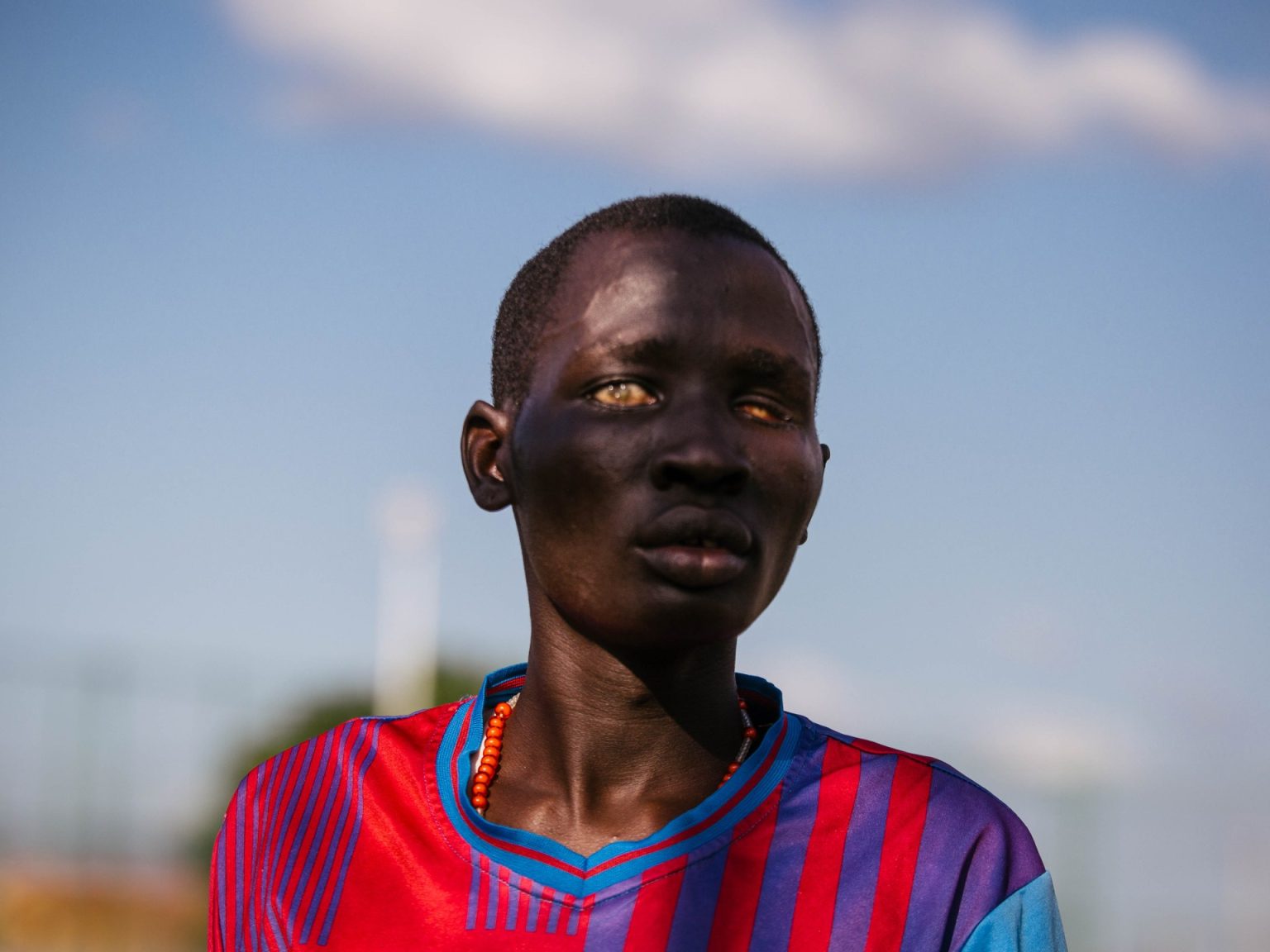In the heart of South Sudan, where conflict and hardship have cast long shadows, a unique sporting endeavor has emerged, offering a beacon of hope and empowerment to individuals who have lost their sight. The South Sudan Blind Football League, a testament to the resilience of the human spirit, provides a platform for visually impaired individuals to rediscover their passion for football, reclaim their confidence, and forge a sense of community. It’s a space where the familiar sounds of the game – the jingle of the ball, the shouts of players, and the rhythmic banging on goalposts – take on a new significance, guiding players through the field and fostering a deep sense of camaraderie. The league isn’t just about sport; it’s about rebuilding lives shattered by adversity.
The game unfolds with a unique set of rules, carefully designed to accommodate the players’ visual impairment. A specially designed ball fitted with bells provides an auditory cue for players to track its movement. Coaches and siblings stationed around the field add another layer of guidance, strategically banging on the goalposts to help players orient themselves and aim their shots. Crucially, players employ a verbal cue, shouting “voy” – Spanish for “I’m coming” – to alert their opponents of their approach. This simple yet effective communication system minimizes the risk of collisions and promotes a safe and inclusive playing environment. The blindfolds worn by all players, regardless of their degree of visual impairment, ensure a level playing field and emphasize the shared experience of navigating the world without sight.
For many players, the league represents a lifeline, a chance to break free from the isolation and despair that often accompany blindness. David Madol, a driving force behind the league’s creation, emphasizes its transformative power. The game, he explains, isn’t just about scoring goals; it’s about regaining confidence in one’s physical abilities, learning to move without fear, and forging connections with others who understand the challenges of living without sight. The league provides a space where players can shed the societal stigma associated with disability and embrace their potential. The shared experience of playing blind football fosters a profound sense of belonging, creating a support network that extends beyond the pitch and into the players’ daily lives.
James Ellon’s story embodies the transformative impact of the South Sudan Blind Football League. Born sighted, Ellon began experiencing vision problems around the age of three. In a country grappling with limited healthcare resources and widespread misconceptions about disability, his condition was often attributed to supernatural causes. The lack of access to specialized medical care meant his vision progressively deteriorated, culminating in complete blindness by the age of twelve. The loss of sight was devastating. Ellon, a passionate football player, was confined to his home, his dreams and aspirations seemingly extinguished. The world he once knew through vibrant colors and dynamic movement had been reduced to a canvas of darkness. He felt frustrated, disappointed, and utterly hopeless. The inability to play football, a game he loved dearly, added another layer of anguish to his already heavy burden.
Ellon’s mother, a nurse and government official, refused to give up hope. She tirelessly searched for resources and support, eventually learning about the Rajap Center for the Blind in Juba. For Ellon, the news of a school specifically designed for blind individuals was met with disbelief and a flicker of renewed hope. Initially, navigating the unfamiliar environment without sight was a daunting challenge. His mother, unwavering in her support, accompanied him to and from the center each day until he gained confidence and mastered the use of a cane. At the Rajap Center, Ellon’s world began to expand once more. He learned braille, excelled in his studies, and discovered a community of individuals who shared his experiences.
The Rajap Center proved to be a turning point in Ellon’s life. It equipped him with the skills and confidence to reintegrate into mainstream education, transitioning to an ordinary school in 2019. This transition wasn’t just about Ellon’s personal growth; it was an opportunity to challenge societal perceptions of disability. He became an advocate for inclusion, demonstrating to teachers and fellow students that disability is not a barrier to achievement. His journey became a testament to the power of education and the resilience of the human spirit. The once lost hope was rekindled, not just for himself, but for others who might be facing similar challenges. The South Sudan Blind Football League became an extension of this journey, allowing Ellon to not only reclaim his passion for the game but also inspire others to overcome their limitations and pursue their dreams. The league’s success underscores the profound impact of inclusive initiatives in empowering marginalized communities and fostering a more equitable society. It is a powerful reminder that sport can transcend physical limitations and ignite the human spirit.

